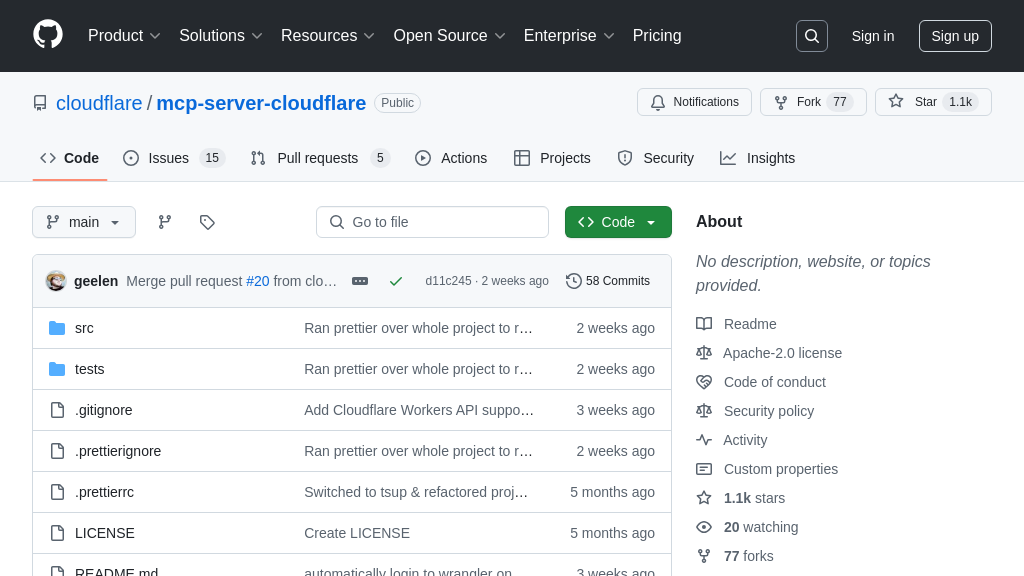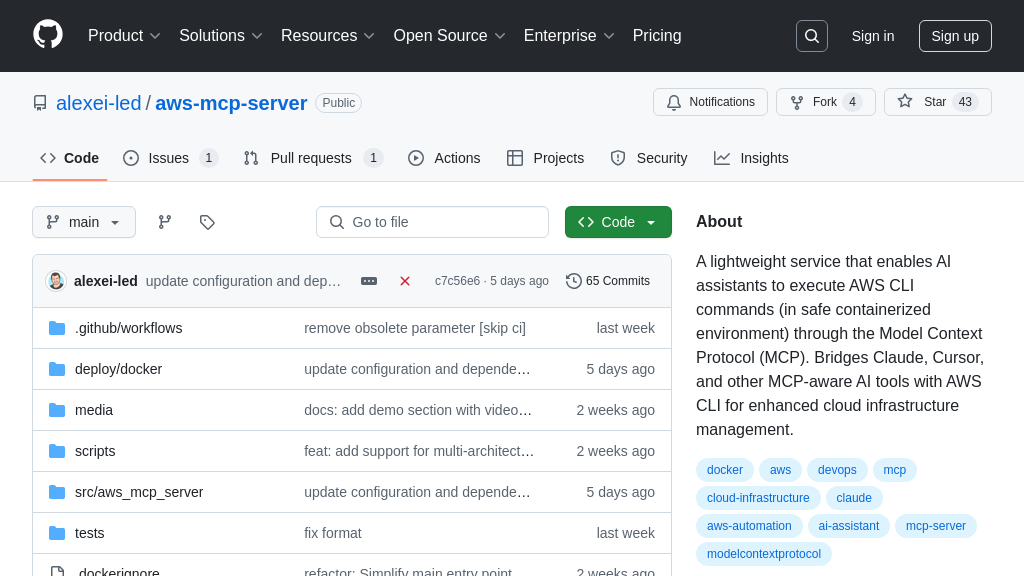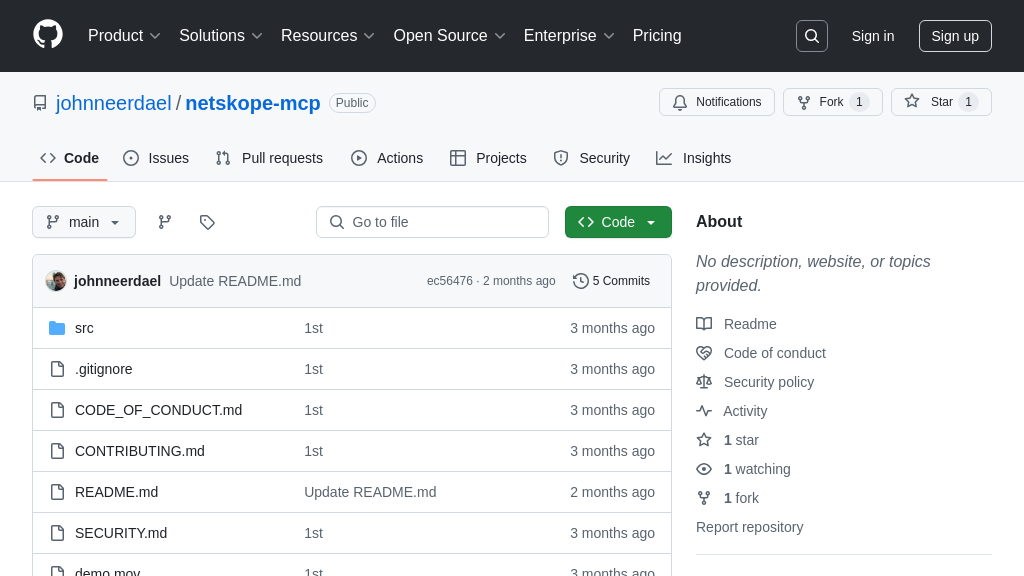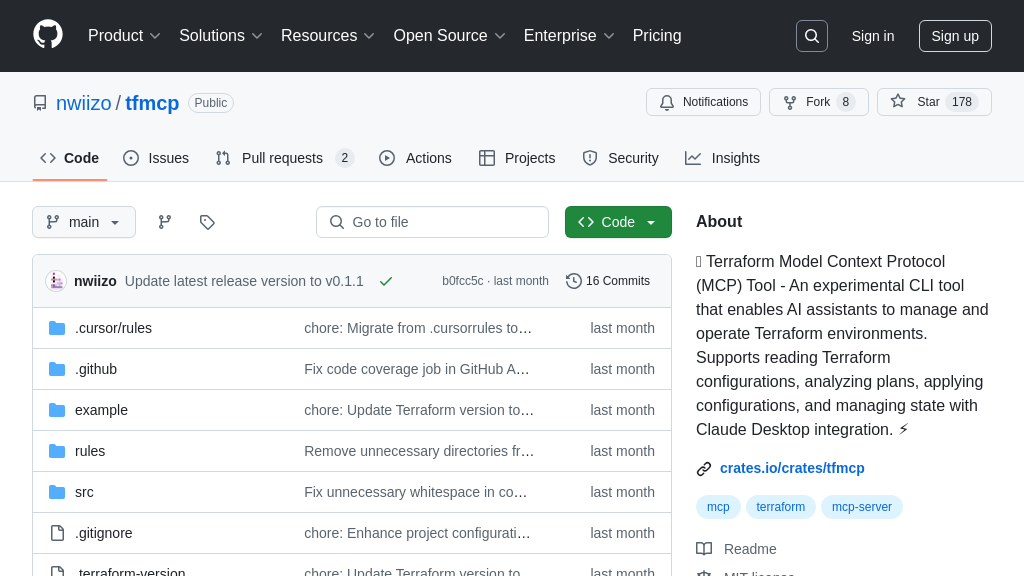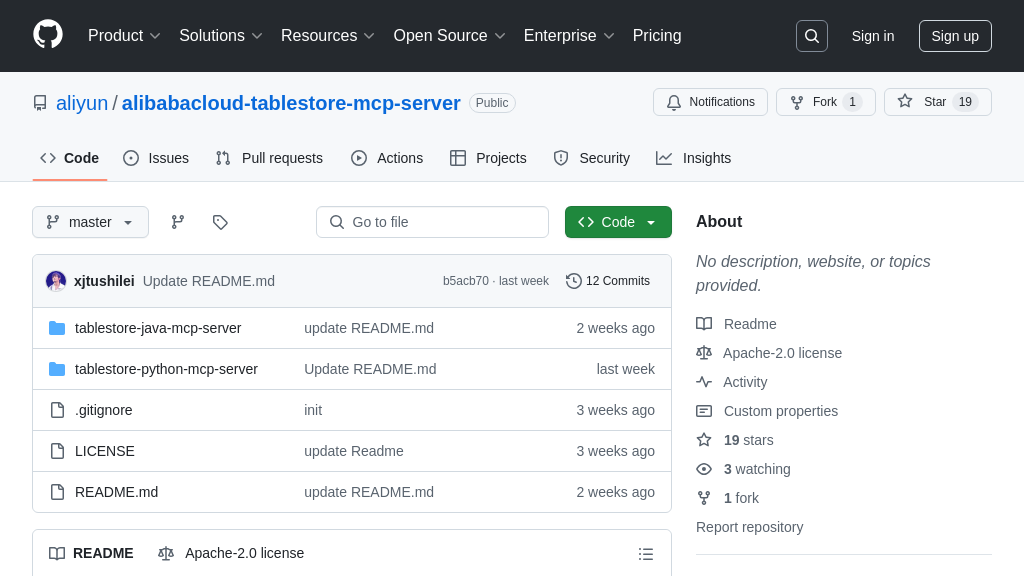azure-cli-mcp
Azure CLI MCP Server: Securely connect AI models to Azure via the Azure CLI for resource management.
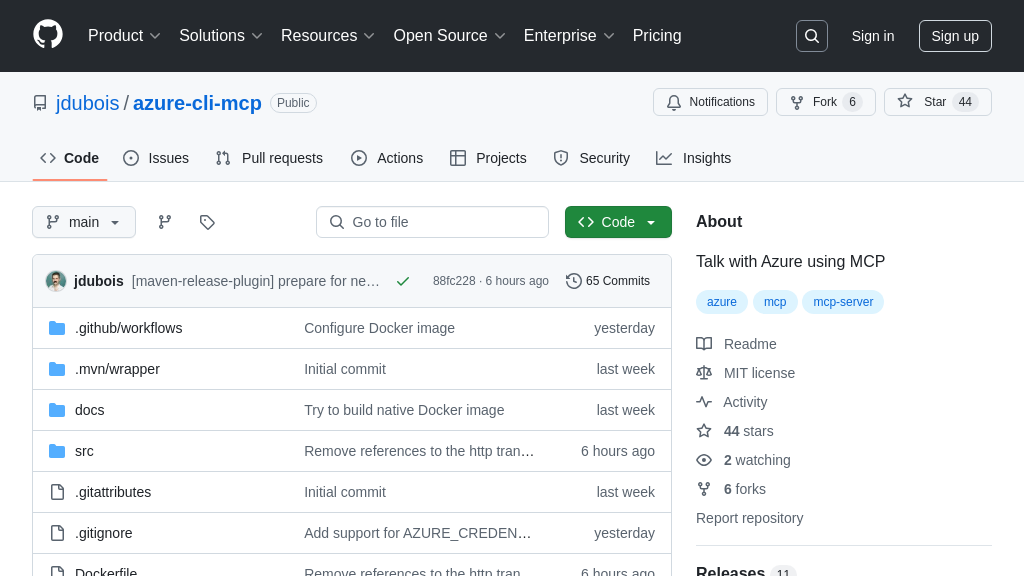
azure-cli-mcp Solution Overview
The Azure CLI MCP Server is a powerful tool designed to bridge the gap between AI models and Azure resource management. As an MCP Server, it wraps the Azure CLI, providing a standardized interface for AI models to interact with Azure services. This allows models to perform a wide range of tasks, from listing resources and checking configurations to fixing security issues and creating new resources, all through a controlled and secure channel.
This server supports stio transport, with HTTP transport planned for future releases, and can be run as a Java application or within a Docker container. By integrating with AI models, developers can enable intelligent automation of Azure tasks, such as securing Blob Storage accounts or deploying complex applications using managed identities. The Azure CLI MCP Server empowers developers to leverage AI for efficient and intelligent Azure resource management, streamlining workflows and enhancing productivity. It's important to validate the commands generated by the LLM before execution.
azure-cli-mcp Key Capabilities
Azure CLI Access via MCP
The azure-cli-mcp server provides a standardized interface for AI models to interact with the full range of Azure services through the Azure CLI. It acts as a wrapper, exposing the CLI's capabilities within the MCP ecosystem. This allows AI models to execute any command that the Azure CLI can, enabling them to manage and interact with Azure resources in a controlled and auditable manner. The server translates MCP requests into Azure CLI commands, executes them, and returns the results to the AI model. This eliminates the need for AI models to directly handle Azure authentication or command syntax, simplifying integration and improving security.
For example, an AI model could use this feature to retrieve the status of a virtual machine, scale a web application, or create a new storage account, all through a consistent MCP interface. The technical implementation involves executing az commands within the server and returning the output.
Resource Management Automation
This feature enables AI models to automate the management of Azure resources. By leveraging the Azure CLI's comprehensive command set, AI models can perform tasks such as listing resources, checking configurations, fixing configuration or security issues, and creating new resources. This automation capability reduces the operational overhead associated with managing Azure infrastructure and allows for more efficient resource utilization. The MCP server acts as a secure intermediary, ensuring that all actions are performed with the appropriate permissions and within defined boundaries.
Consider a scenario where an AI model is tasked with ensuring that all Blob Storage accounts in a subscription are securely configured. It can use the azure-cli-mcp server to check the configuration of each account and automatically apply the necessary security settings, such as enabling encryption and configuring access policies. This feature relies on the server's ability to translate high-level instructions from the AI model into specific Azure CLI commands.
Standardized Interaction with Azure
The azure-cli-mcp server offers a standardized way for AI models to interact with Azure, abstracting away the complexities of the Azure CLI. This standardization simplifies the integration process and reduces the learning curve for AI developers. By providing a consistent interface, the server allows AI models to seamlessly switch between different Azure services and tasks without requiring modifications to their core logic. This promotes code reusability and reduces the risk of errors.
For instance, an AI model designed to monitor the performance of an application deployed on Azure can use the same MCP interface to retrieve metrics from Azure Monitor, query logs from Azure Log Analytics, and manage the application's configuration. The server handles the underlying details of interacting with each service, presenting a unified view to the AI model. The technical implementation involves mapping MCP requests to the corresponding Azure CLI commands and standardizing the output format.
Technical Implementation
The azure-cli-mcp server is implemented as a Java application that can also be run inside a Docker container. It currently supports stio transport for communication, with HTTP transport planned for future releases. The server executes az commands and can be configured to run locally. Security is a key consideration, and the current implementation is recommended for local use only due to potential risks associated with remote execution. Future versions may include support for Azure token authentication to enable secure remote usage. The server is designed to be easily integrated with AI models and other MCP components.

